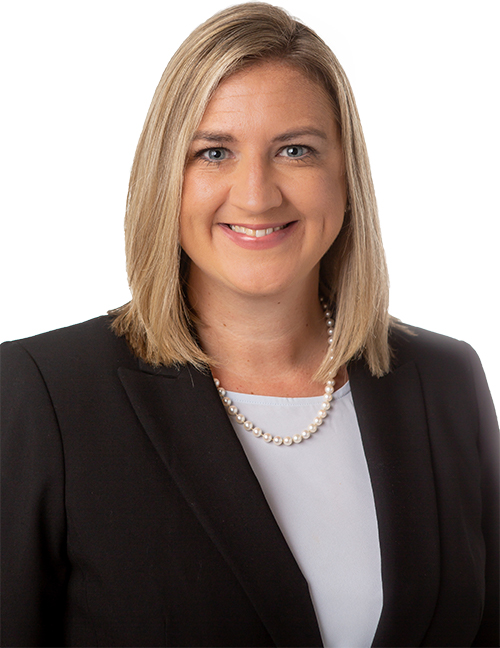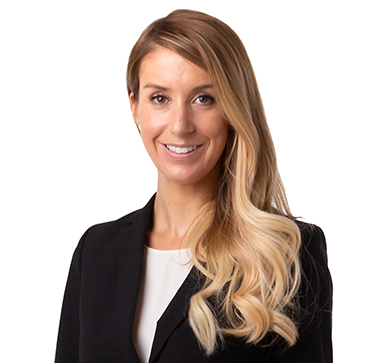Stop! In The Name Of (Bankruptcy) Law: Complying With The Automatic Stay
BY: Emily M. Gindhart and Lucas I. Pangle
Immediately after filing a bankruptcy petition, debtors are provided one of the most robust and vital protections under the Bankruptcy Code: the automatic stay. The automatic stay functions as a nationwide (and, to a degree, worldwide) injunction that protects the debtor and their property during a bankruptcy proceeding.
To those that do not regularly encounter it, the reach of automatic stay is surprisingly broad. It operates against all “entities”, which includes not only “person[s]”, but also “estate[s], trust[s], governmental unit[s], and United States trustee[s].”[i] It also applies to virtually all formal and informal actions taken because of a prepetition claim or debt[ii] against either a debtor or the property in the bankruptcy estate. Actions that violate the automatic stay are void (or at least voidable),[iii] and your client (and potentially you as their attorney) may face contempt sanctions and substantial liability, including actual damages, attorneys’ fees and costs, and punitive damages.[iv] So, what exactly constitutes a stay violation, and how can you ensure that you and your clients comply with this mandate?
Unless the bankruptcy court modifies or lifts the automatic stay or one of the limited exceptions applies, the automatic stay applies to a vast scope of actions (and inactions), including, but not limited to, the following:
- Contacting a debtor by any means for the purpose of collecting, assessing, or recovering a prepetition debt;[v]
- Creating, perfecting, or enforcing liens against a debtor or the bankruptcy estate’s property;
- Foreclosing or repossessing a debtor’s or the bankruptcy estate’s property on account of a prepetition debt;[vi]
- Filing or maintaining an unlawful detainer or ejection action (even after the subject lease is “rejected” by a debtor);[vii]
- Filing a garnishment summons, continuing or maintaining a garnishment, or failing to turn over any monies that have been withheld by the garnishee and retained by a garnishor within 90 days of the bankruptcy petition;[viii]
- Enforcing a prepetition judgment against a debtor;
- Pressing or otherwise initiating criminal charges against a debtor to coerce payment or punish nonpayment of a dischargeable, pre-petition debt;[ix] and
- Pursuing collection actions against non-debtors, whose relationship with a debtor is such that a debtor “may be said to be the real party defendant and that a judgment against the third party defendant will in effect be a judgment or finding against the debtor” (e.g. when the non-debtor is entitled to absolute indemnity by a debtor).[x]
While pausing or ceasing activity targeted towards a debtor or its estate is prudent, compliance with the automatic stay sometimes means that a creditor must take affirmative acts. Because the automatic stay bars “continuation of actions”[xi], creditors shoulder obligations to notify a court or tribunal that an action is stayed.[xii] Indeed, “a creditor or the creditor’s legal representative has an affirmative duty, post-petition, to discontinue any proceeding it has initiated or continued, or to take other appropriate steps to halt that proceeding if the proceeding: (i) jeopardizes or threatens in any way the integrity of the bankruptcy estate, or (ii) exposes the debtor to harassment or coercion or otherwise inhibits the debtor’s ‘breathing spell from [their] creditors.’”[xiii]
To avoid running afoul of the automatic stay, you may consider implementing the following into your practice:
- Before filing a complaint or summons, especially for collection actions, search for the prospective defendant’s name in a general Public Access to Court Electronic Records (PACER) for any bankruptcy filings, and broaden your search to include any affiliated owners or principals;
- Upon receiving notice of a bankruptcy, whether in writing or orally, advise your client on complying with the stay, including immediately ceasing any further informal or formal collection actions, such as by staying or removing matters from a docket;
- While the stay is waivable, avoid relying on prepetition contractual waivers of the stay because these are regularly found to be unenforceable as contrary to public policy;
- Request termination, annulment, or modification of the stay by filing a motion for relief with the bankruptcy court; and
- In the event of a violation, take proactive action to correct and prevent further violations.
The automatic stay is essential to the bankruptcy process because it relieves a debtor from pressure and harassment from their creditors, protects a debtor’s assets to enable them to have a fresh start, and ensures creditors are treated fairly in any recoveries from a debtor.[xiv] In light of its essentiality, the automatic stay is exceptionally broad, and violation can lead to substantial penalties. Accordingly, “think it over” and proceed with caution when dealing with potential application of the automatic stay.
Endnotes:
[i] V11 U.S.C. § 101(15).
[ii] See 11 U.S.C. § 362(a), (c).
[iii] There is a split in authority as to whether an act in violation of the automatic stay is void or voidable, and neither the Supreme Court of the United States nor the 4th Circuit Court of Appeals have specifically addressed this split. See Winters By & Through McMahon v. George Mason Bank, 94 F.3d 130, 136 (4th Cir. 1996) (discussing split, but declining to address issue because plaintiff lacked standing).
[iv] 11 U.S.C. § 362(k)(1).
[v] E.g., In re Robinson, Case No. 06-10518-SSM, 2008 Bankr. LEXIS 4976, at *2, *8-10 (Bankr. E.D. Va. Sept. 29, 2008) (finding a law firm in contempt for sending invoices, without any threat to sue, which included charges for prepetition legal services).
[vi] E.g., Budget Serv. Co. v. Better Homes, 804 F.2d 289 (4th Cir. 1986) (upholding contempt sanctions and the award of compensatory damages, punitive damages, and attorneys’ fees for repossessing one leased vehicle and attempting to repossess two other leased vehicles).
[vii] See Thompson-Mendez v. St. Charles at Olde Court P’ship, LLC (In re Thompson-Mendez), 321 B.R. 814, 815, 820 (Bankr. D. Md. 2005) (finding that “[a] creditor must obtain relief from stay from the Bankruptcy Court before pursuing an action in state court to recover possession of the leased premise” even when a lease is deemed rejected).
[viii] E.g., Bailey v. Duvant (In re Bailey), 428 B.R. 694, 698 (Bankr. N. W.Va. 2010) (failure to release); In re Manuel, 212 B.R. 517, 518 (Bankr. E.D. Va. 1997) (failure to dismiss); In re Baum, 15 B.R. 538 (Bankr. E.D. Va. 1981) (retention).
[ix] E.g., In re Kimbler, 618 B.R. 437, 442-43 (Bankr. E.D.N.C. 2020) (finding the creditor liable for violation of the automatic stay for filing criminal embezzlement charges against the debtor with the preliminary purpose of recovering a dischargeable, pre-petition debt).
[x] See A.H. Robins Co., Inc. v. Piccinin, 788 F.2d 994, 1001 (4th Cir. 1986), cert. denied, 479 U.S. 876 (1986).
[xi] 11 U.S.C. § 362(a)(1).
[xii] Eskanos & Adler, P.C. v. Leetien, 309 F.3d 1210, 1214-15 (9th Cir. 2002) (holding that 11 U.S.C. § 362(a)(1) imposes affirmative duty on creditor to dismiss or stay pending collection action against debtor).
[xiii] Skillforce, Inc. v. Hafer, 509 B.R. 523, 531-33 (E.D. Va. 2014) (holding that the creditor violated the automatic stay by neither discontinuing the debtor’s interrogatories nor taking steps to cancel the status hearing, which was set by the general district court sua sponte upon notice of the bankruptcy).
[xiv] See Shaw v. Ehrlich, 294 B.R. 260, 267 (W.D. Va. 2003), aff’d sub nom, Wiencko v. Ehrlich (In re Wiencko), 99 Fed. App’x 466 (4th Cir. 2004).
About the Authors:
Emily Gindhart is a member of the Corporate and Business Law Team of Wharton, Aldhizer & Weaver, P.LC.. In her practice, she advises and counsels entrepreneurs and businesses of diverse industries from their first inspiration to their final dissolution. She earned her law degree summa cum laude from the University of Richmond and her undergraduate degree with distinction from the University of Virginia.
Lucas Pangle graduated from the William & Mary School of Law in 2016 with honors and received his bachelor degree from Duke University in 2013. He maintains a varied litigation and business counseling practice out of Harrisonburg, Virginia, in which he helps/advocates/fights for clients facing complex, unique, or novel legal challenges. As part of his practice, Lucas appears for clients in forums of all kinds (such as before administrative agencies, public boards, and tribunals) across the country.



